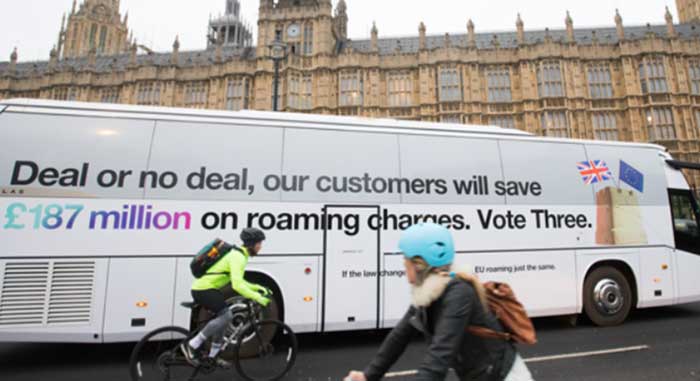Three UK was one of the pioneers of free mobile roaming worldwide in regions that it had established regional offices or partners. I remember jauntily using its PAYG services in the USA and Hong Kong, just like I was in the UK – a pretty useful and stress-free feature for travellers. In 2015, I was pretty happy that Three added Spain and other countries to its 'Feel at Home' roaming – a popular holiday destination for Brits. Later the same year we heard that EU roaming charges would be abolished starting June 2017, which they were, but some mobile operators had more small print than others about fair usage and so on.
Of course UK citizens voted for Brexit in 2016, so there was a question mark over what might happen after the government had consulted, drawn up plans, and picked the most beneficial form of Brexit for the people and businesses of these isles. What appears to be happening recently is that companies are back pedalling on free roaming, which is understandable from a commercial profit-making business perspective. I mentioned this reimposition of EU roaming charges, fees and so on back in June this year as the biggest UK operators (EE, Vodafone, and O2) appeared to scale back this level of service, like dominoes falling. Attempting to squeeze more money out of roaming without sparing outcry, the various mobile providers appeared to favour FUPs and/or a fixed daily surcharge for EU roaming.

On Thursday, despite my personal expectations, Three was the latest domino to fall. The firm has decided to impose a £2 per day surcharge on customers when roaming within the EU (£5 a day when roaming outside the EU), starting with effect on 23rd May 2022. These changes affect any customers who get a new or renewed contract from 1st October this year. Frequent travellers to Ireland don't need to worry though as it is unaffected by the changes.
"We know that Go Roam has always been important to our customers and we had hoped to retain this benefit, but unfortunately there are now too many unknowns, which has made it commercially unviable for us to continue," explained Three on its news blog. "This includes variations to the underlying cost of roaming, meaning we now have no visibility over the maximum amount it will cost us to provide a service for our customers to use their phone while abroad."
The above news marks quite a mood change compared to Three's press release from March 2019, just ahead of one of the Brexit Days that never came. In a post headlined Go Roam after Brexit – Three pledges to save people £187 million in mobile roaming charges after Brexit – Three set out how it would continue to be "the Best Network for Roaming".

A promise on a bus
At that time Three seemed to be on a roaming-quashing crusade, expanding the service level to cover more worldwide destinations, never mind in our neighbouring countries. Dave Dyson, CEO at Three was quoted in the press release saying "regardless of Brexit negotiations, allowing our customers to continue using their usual allowances when they travel within the EU".
Will people be bothered about paying a daily fee like this for the benefits of roaming a few weeks every year? At the current time, Covid-19 lockdowns and fewer people taking foreign holidays provides good cover for introducing such charges.






